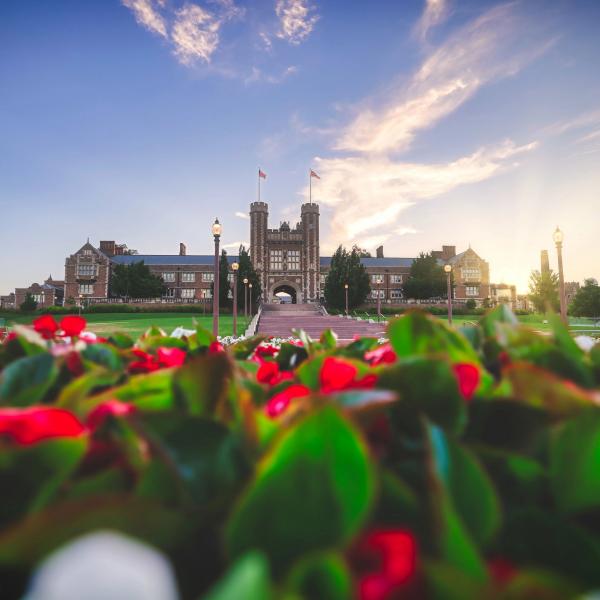On Oct. 19, the inaugural Robert Morrell Memorial Lecture Series in Asian Religions will address the evolving attitudes around meat-eating in Buddhist culture, in a talk titled “Gratitude and Treasuring Lives: Eating Animals in Contemporary Buddhism.” The talk commemorates the work of Morrell, a specialist in Japanese literature and Buddhism who taught at Washington University for 34 years. The lecture holds special significance for the campus, where Morrell was the first to teach a course on Buddhism.
Barbara Ambros, a professor of East Asian Religions at the University of North Carolina at Chapel Hill, asks us to consider the ethical implications of a world where people are increasingly reliant on meat consumption. Ambros’s lecture will explore the question of gratitude and meat eating within environmental, animal-welfare, and social justice contexts. What does it mean to be grateful to the animal whose flesh you consume?
In her talk, Ambros will examine contemporary Japanese Buddhism as a model for how an ethics of gracious consumption might work. “Buddhism is often assumed to promote vegetarianism,” says Ambros, “but in practice, attitudes toward meat eating vary considerably across the tradition. While meat eating is regarded as being fraught with potential problems in most forms of Buddhism, some variants restrict only the kinds of meat that monastics can consume while others categorically reject all consumption of meat even for laypeople.”
Contemporary Japanese Buddhism has adapted to the fact that, in Japan, meat eating is more common than in most nations with a long history of Buddhist practice. “While the connection between animals and gratitude has a long history in Buddhism,” Ambros writes, “in modern Japan the meaning of repaying a debt of gratitude has shifted from an emphasis on liberating animals to consuming animals with gratitude.”
The case of meat consumption in Japanese Buddhism provides a way of thinking about the ethics of human-animal relationships more broadly as well, observes Laurie Maffly-Kipp, the director of religious studies and the Archer Alexander Distinguished Professor. “It raises intriguing questions, for example: How are humans obligated to thank animals for the sacrifice they show in allowing us to transform their bodies into (our) human ones? This work is also important for an understanding of the importance of food and diet generally in religious practice. Comparative work like this offers the chance to examine a way of thinking about ethics that is foreign to many outside of that culture.”
Rebecca Copeland, the chair of East Asian languages and cultures and a professor of Japanese language and literature, hopes that the talk “will offer us new ways to appreciate our role and responsibility as consumers of animals.” Copeland also says that Robert Morrell was a great animal lover. She adds, “I think he would be delighted by this lecture.”
The Robert Morrell Memorial Lecture in Asian Religions is co-organized by East Asian Languages and Cultures and by Religious Studies. Ambros will speak on October 19 at 4:00pm in the Women’s Building Formal Lounge. For more information, visit the East Asian Language and Culture website.




